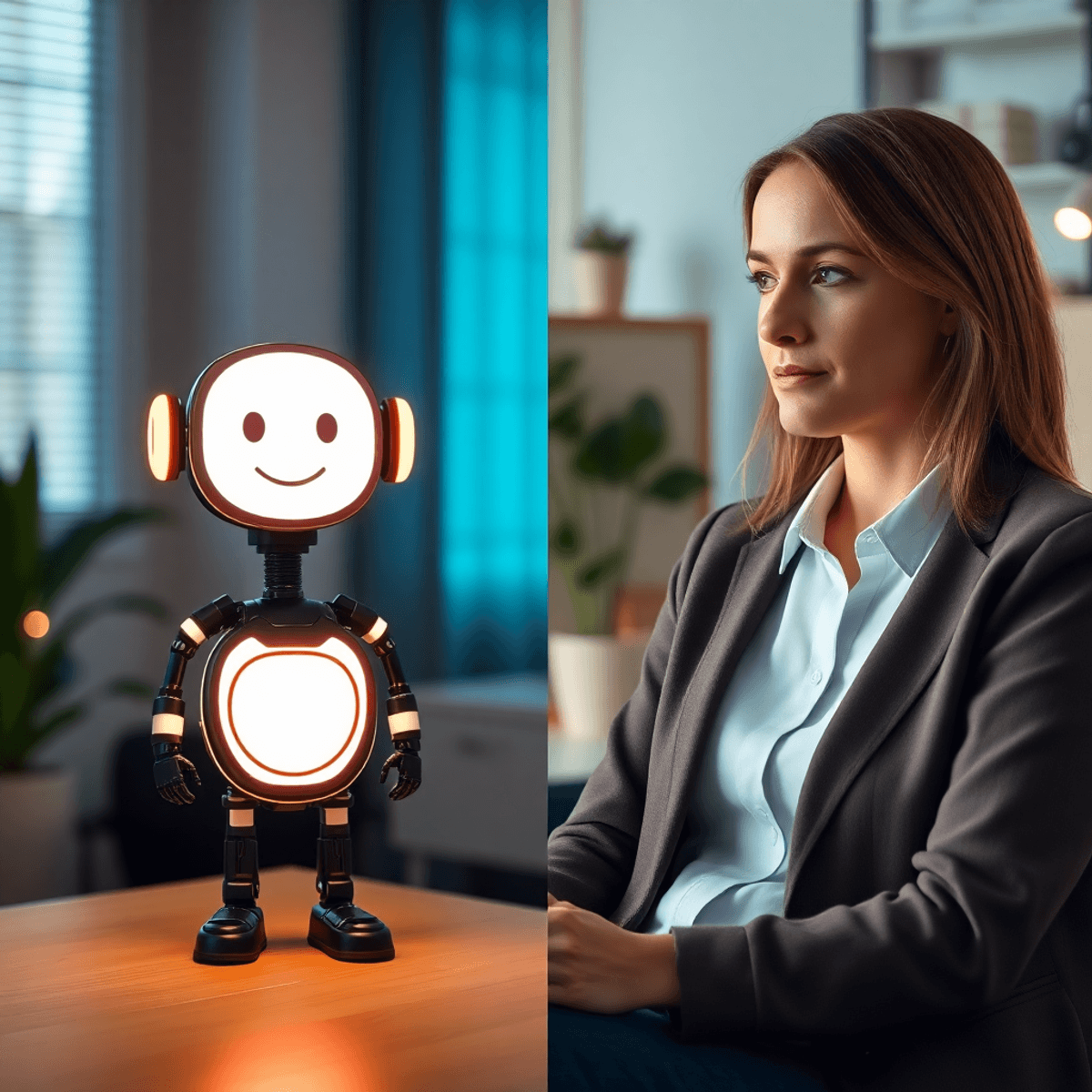In today's digital age, AI companionship has emerged as a new form of emotional support, raising important questions about when to use AI friends versus when to seek professional therapy. Understanding these differences is crucial for making informed decisions about your mental health and well-being.
What Are AI Friends?
AI friends are artificial intelligence companions designed to provide conversation, emotional support, and companionship through natural language processing. They offer 24/7 availability, judgment-free conversations, and personalized interactions that adapt to your communication style and preferences.
Key Characteristics of AI Friends:
- Always available, 24/7
- Non-judgmental and accepting
- Personalized to your interests and communication style
- Immediate response and support
- Cost-effective compared to therapy
- Privacy-focused and confidential
What Is Traditional Therapy?
Traditional therapy involves working with licensed mental health professionals who have extensive training in psychology, counseling, and mental health treatment. Therapists provide evidence-based interventions, clinical assessments, and professional guidance for mental health conditions.
Key Characteristics of Traditional Therapy:
- Professional expertise and clinical training
- Evidence-based treatment approaches
- Clinical assessment and diagnosis
- Structured treatment plans
- Professional accountability and oversight
- Insurance coverage options
- In-person or virtual sessions
Key Differences Between AI Friends and Therapy
1. Professional Qualifications
AI Friends:
- No formal mental health training
- Cannot provide clinical diagnosis
- Cannot prescribe medication
- Limited to conversation and support
Therapy:
- Licensed mental health professionals
- Extensive clinical training and education
- Can provide diagnosis and treatment
- Can prescribe medication (psychiatrists)
2. Treatment Capabilities
AI Friends:
- Emotional support and companionship
- Conversation and active listening
- Coping strategy suggestions
- Stress relief and anxiety management
- Social skills practice
Therapy:
- Clinical diagnosis and assessment
- Evidence-based treatment protocols
- Crisis intervention and management
- Complex mental health treatment
- Medication management
- Referrals to specialists
3. Crisis Situations
AI Friends:
- Cannot handle mental health emergencies
- Limited crisis intervention capabilities
- Should not replace emergency services
- Can provide calming conversation
Therapy:
- Crisis intervention training
- Emergency response protocols
- Hospitalization coordination
- Suicide prevention expertise
- Emergency contact procedures
When to Use AI Friends
AI friends are ideal for:
Daily Support and Companionship
- Combatting loneliness and isolation
- Regular emotional check-ins
- Stress relief and anxiety management
- Social skills practice
- Maintaining daily routines
Supplemental Support
- Between therapy sessions
- Additional emotional support
- Coping strategy reinforcement
- Mood tracking and awareness
- Social connection maintenance
When to Seek Professional Therapy
Professional therapy is essential for:
Mental Health Conditions
- Depression and anxiety disorders
- Post-traumatic stress disorder (PTSD)
- Bipolar disorder
- Eating disorders
- Substance abuse issues
- Personality disorders
Crisis Situations
- Suicidal thoughts or ideation
- Self-harm behaviors
- Severe depression or anxiety
- Trauma or abuse
- Relationship violence
- Acute stress reactions
How AI Friends and Therapy Can Work Together
The most effective approach often combines both AI companionship and professional therapy:
Complementary Benefits
- AI friends provide daily support between sessions
- Therapy addresses underlying issues and provides treatment
- AI companions reinforce therapeutic strategies
- Therapists can monitor progress and adjust treatment
- 24/7 support reduces crisis risk
Making the Right Choice
Consider AI Friends If You Need:
- Daily emotional support and companionship
- Help with mild stress and anxiety
- Social skills practice
- 24/7 availability
- Cost-effective emotional support
- Judgment-free conversation
Seek Professional Therapy If You Experience:
- Persistent sadness or hopelessness
- Severe anxiety or panic attacks
- Thoughts of self-harm or suicide
- Difficulty functioning in daily life
- Trauma or abuse history
- Relationship problems affecting your well-being
Safety Considerations
AI Friend Limitations
- Not a substitute for professional help
- Cannot handle mental health emergencies
- Limited crisis intervention capabilities
- Should not replace medication or treatment
Emergency Situations
If you're experiencing a mental health emergency:
- Call 911 or your local emergency number
- Contact a suicide prevention hotline
- Go to the nearest emergency room
- Contact your therapist or mental health provider
- Reach out to trusted friends or family
Conclusion
AI friends and traditional therapy serve different but complementary purposes in mental health support. AI companionship provides daily emotional support, companionship, and stress relief, while professional therapy offers clinical treatment, diagnosis, and crisis intervention.
The most effective approach often combines both resources, using AI friends for daily support and companionship while seeking professional therapy for clinical treatment and crisis situations. Understanding these differences helps you make informed decisions about your mental health and well-being.
